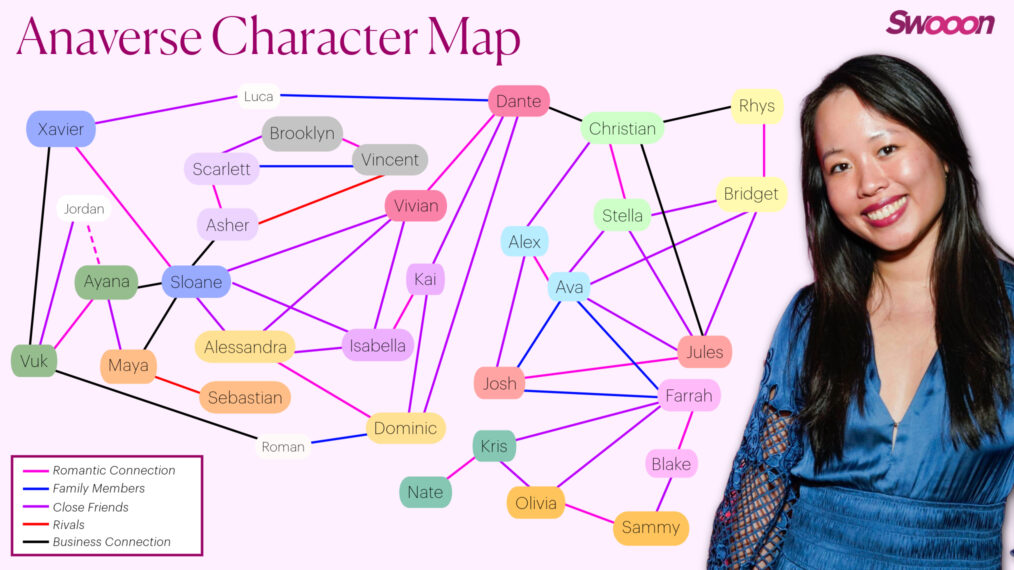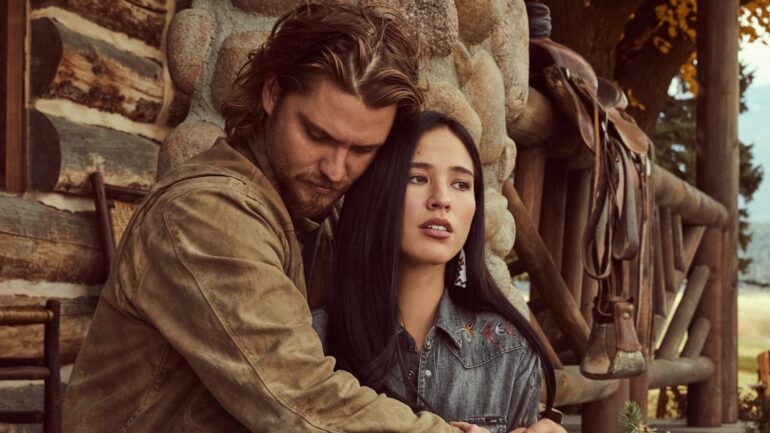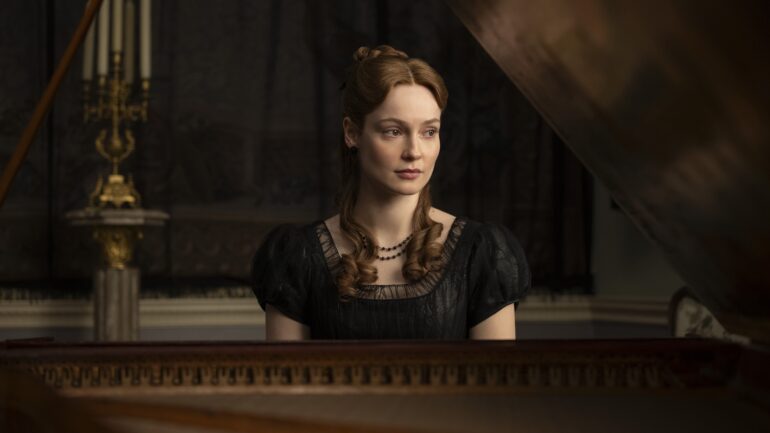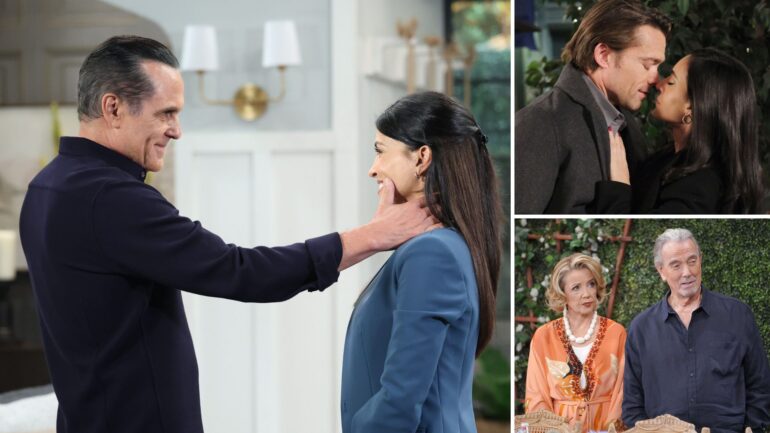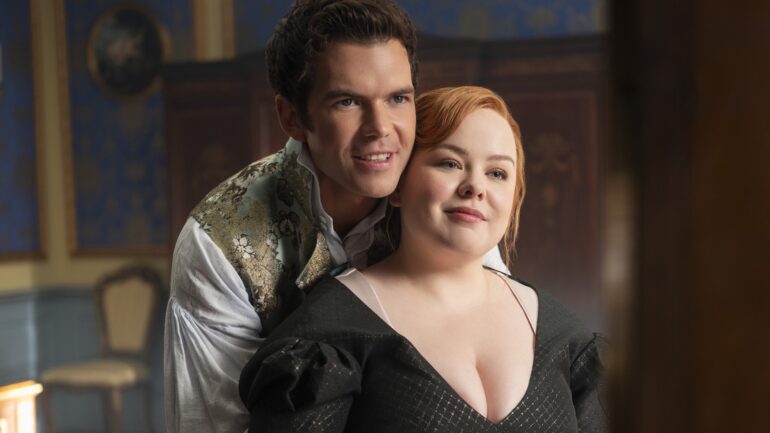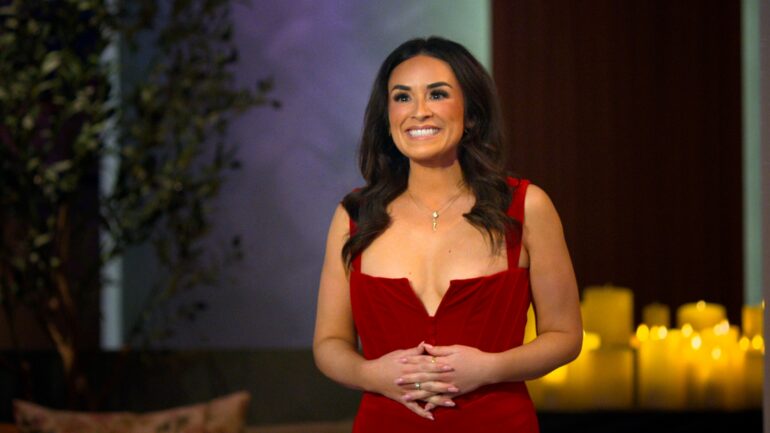Exclusive Interview
Author Kennedy Ryan Breaks Down ‘Can’t Get Enough’ & Why the Romance Genre Is a ‘Trojan Horse’
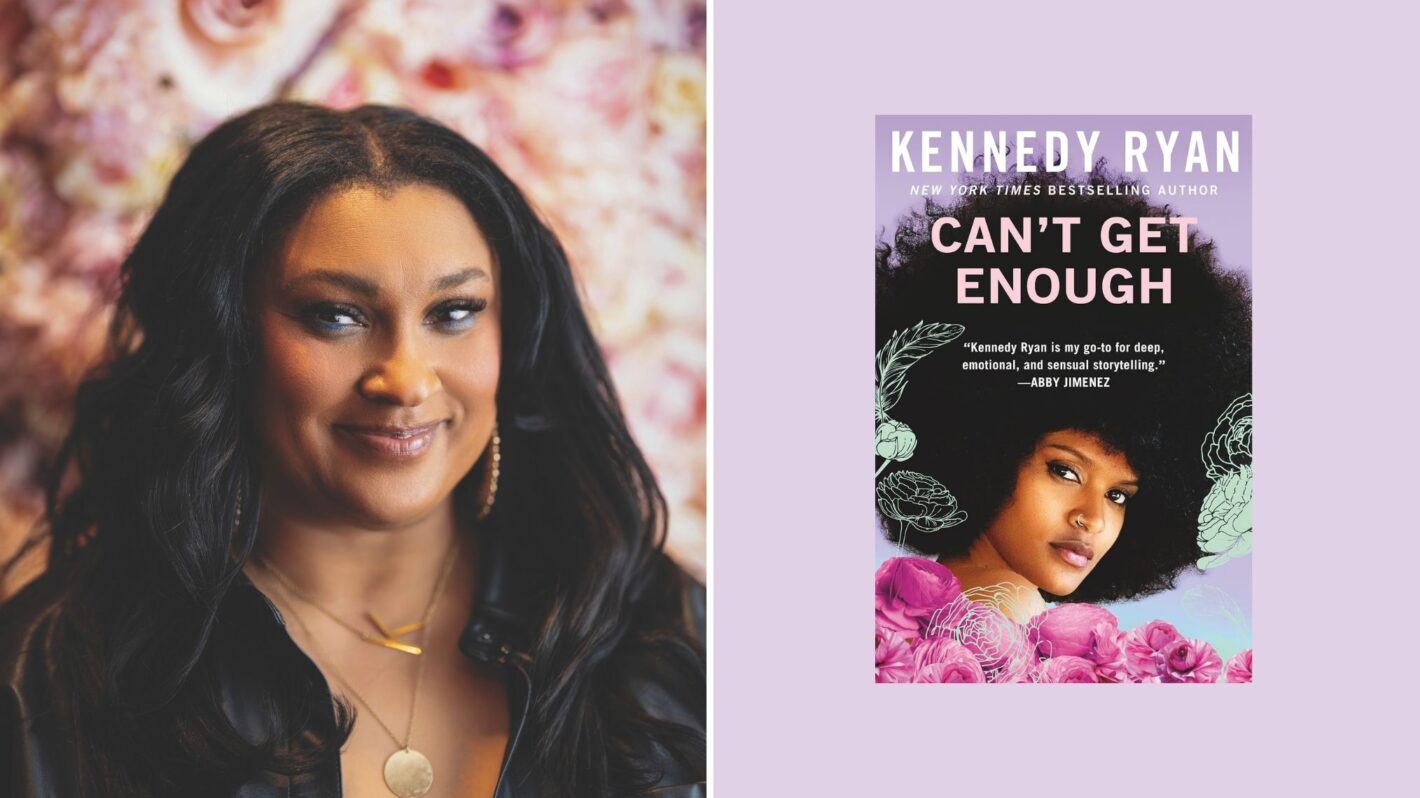
The time has finally come to say goodbye to the ladies of Kennedy Ryan’s Skyland series (don’t worry, we’re crying too!)
For the series finale, Can’t Get Enough centers on series regular Hendrix, who faces the realities of caring for her mother with Alzheimer’s. Amid this trying period of her life, Hendrix still has to keep her head in the game with a blossoming new client and her venture capital company supporting Black entrepreneurs. The last thing she expects is Maverick, a Black billionaire (yes, with a B!) to set his sights on her.
While Hendrix has made peace with the fact that she can do bad all by herself, this might be the man to prove that she doesn’t have to.
Swooon spoke with Kennedy about the underlying message of the Skyland series, showing readers a soft side to their fave rich auntie heroine, why she navigates weighty subjects in romance, and why this story is dedicated to rest.
Hendrix is a character we’ve gotten glimpses of since Before I Let Go. How did you approach expanding Hendrix’s character? How did you figure out who she really is behind closed doors?
Kennedy Ryan: I think when you’re writing a series, it’s a balance of dropping hints about who that character is to entice readers to get excited when it’s their turn in the spotlight. For Hendrix, she served different roles in the other two books, especially in Before I Let Go, which is dealing with depression and mental health and grief and loss, and a lot of times she served as comedic relief. And then in This Could Be Us, we have Sol, who has been betrayed and is rebuilding her life, and we see Hendrix as a really good friend. I knew that Hendrix was someone who is like, “I can do bad all by myself. I could do good all by myself.” She is someone who has goals and dreams, and she’s not going to be with someone who’s going to detract from that. Hendrix is someone who has spent a lot of time with herself and has done that work, and she’s not going to sacrifice that for someone a man or partner who is insecure about her success, or who doesn’t want to see her succeed because it diminishes them somehow, or who doesn’t respect her. I wanted readers to have that sense of who she is as a person from the beginning of the novel.
But I think one of the challenges was to add dimension, because a lot of people just assume Hendrix is the funny one, or Hendrix is the side character. I knew all of the dimension that there was to Hendrix. I knew that once we started digging into her mom’s condition, we were going to see some vulnerability, which I think is always so important when you’re writing strong characters, especially strong characters who are Black women, because there’s this assumption that we are super women. I think navigating certain spaces gives us a certain strength and resilience, but I think it’s a dangerous myth to think that we are stronger than everybody else and that we don’t have these vulnerabilities. That we don’t hurt, that we don’t lose. So I was very intentional about building vulnerability into Hendrix as a character.
The parent versus childless conversation has been a major conversation in recent years. How did you want to navigate that conversation with respect to both parties?
Ryan: I really wanted her story to say there are valid ways to put love out into the world. You don’t get to tell me that the only way my love and commitment and how I care about people can only be expressed if I have a child. I think a lot of that goes to an even broader conversation, which is reproductive choice, bodily choice, and bodily autonomy. There seems to be a preoccupation with women’s bodies, and how we should be dictated to about how we navigate the world. That’s the broader conversation, that we, as self-determining human beings, should get to determine whether or not we have kids. That’s really a conversation that I wanted to have, because I wanted to interrogate this culture that tells us you get married and you have a kid and you do these things—and then you squeeze in your dreams and ambitions. Hendrix’s perspective is she’s going to live a big life, and there’s nothing wrong with having kids, but she gets to determine if that’s what her life is going to look like. There are lots of women who don’t want to have kids, and they have their own reasons, and we should respect them. I wanted them to feel seen in this story.
The beginning of Hendrix and Mav’s relationship subverts the “girl’s girls” concept. What are your thoughts on the pressure for women to be “girl’s girls,” and why was it important for you to have Hendrix navigate that conversation?
Ryan: I wasn’t thinking as much about a conversation about girl’s girls. I was thinking, how can I make this feel forbidden? In the context of the conversation you’re talking about with Hendrix, that’s something that I wouldn’t know because of who Hendrix is. It’s definitely a conversation, and I think she is drawing these boundaries for herself, and I believe that women have to figure that out based on their belief system, based on their worldview. Also, you see Hendrix wrestling with those questions herself. But my primary interest with that storyline is, what’s going to make the reader gasp, what’s going to keep the reader intrigued, and how are we going to balance out some of these heavier things that grew from intention with things that are going to be entertaining?
I’m always curious about how authors craft a leading man, but I’m particularly interested in this one. Hendrix is such an independent character. How did you develop Mac, the perfect man for her?
Ryan: The thing about Mav is I knew that Hendrix would need an equal. She needs someone who is not going to feel threatened by her success. There’s this passage where Maverick’s like, “I want to be someone who wants to see you fulfill your dreams, and I want to run beside you as you’re chasing your dreams.” I think one of the most crucial elements of Mavericks’ character is his experience of taking care of an aging parent and her mother, who has dementia. It was something that really clicked for me when I was building these characters. So many people have experience with relatives who have some form of dementia, Alzheimer’s, Parkinson’s, and it’s something they connect on in a way that’s unique. I was very intentional about building him out because I recognize this is a woman who wants to stand on her own and isn’t looking to sideline herself for a man. I think there’s something to a woman where there’s a certain completeness to her because she won’t fall for somebody who she shouldn’t settle for because there’s something in her that’s not complete.
In Hen’s relationship with her mother, who is ailing due to Alzheimer’s, we explore the idea of grieving while one is still there. What was writing that aspect of Hen’s journey like?
Ryan: I think especially with something like Alzheimer’s, something that’s degenerative, you’re already grieving. You’re grieving because you’re losing constantly. It’s not one big loss, like what Hendrix had with her father. She and Maverick had great conversations about the differences between how his grandfather passed away and how his mom passed away. How his mom was like this thread that was ripped out of this quilt, and everything fell apart because she was holding everything together, as opposed to this ongoing grief, where it’s like, wow, we just lost this thing that she used to be able to do, and now we’ve lost this [other] thing that she used to remember, and now she can’t cook. It’s this ongoing grief.
When I’m writing, maybe it’s my journalism background, but everything starts with interviews. It starts with lived experience and research. I don’t even start writing stories until all of that is done because that informs the plot and the story and the characters. As a part of writing this story, I interviewed several people who have had and are still navigating what that journey looks like when you’re caring for somebody who has a degenerative condition that way, including my own mother. The thing is, you really have to take care of yourself and make sure that the rest of your life is not collapsing as you’re supporting a loved one. I think one thing we see Hendrix navigating is, how do I keep my business afloat? How do I keep my friendships vital? How do I fall in love? How do I make time for that when there’s this huge thing that I am ultimately responsible for? And that was a lesson that I really learned in interviewing people, including my own mother. My grandmother passed away from dementia last fall, and my mom and my aunt were her caregivers, and watching them navigate it was so informative. Also, the conversations I had, especially people who lived in other states, that was the dynamic I was really interested in because that’s what Hendrix is dealing with, just the strain of having a family, having a job, and sometimes going back and forth between different cities and different states. It’s this balance of, how do I support and uphold this loved one without allowing the rest of my life to collapse?
We also get some glimpses of our previous Skyland ladies, Soledad and Yas, and we particularly see this evolution of Sol and Hen’s friendship. Why does Hen turn to Sol during this moment in her life?
Ryan: I think that they all have this [group] dynamic, and then they have their individual relationships with each other. In Before I Let Go, we really see Hendrix supporting Yasmen because Hendrix has her own relationship with her daughter, so they have their own connection. And then in Soledad’s story, Hendrix was really speaking to her like you are a whole person, and it’s almost like because she is the one who gave those words to Sol, when it’s time [for her] and she may have her own blind spot about wanting a whole life and feeling like she can sacrifice love by pursuing all these other things, Soledad is reminding her, this is what you told me. I think it just grew out of how the series has developed, and those conversations that she had with Soledad. It’s flipping that conversation and letting Soledad be that support for her here.
The dedication of this book is to “those who have used your magic to lift, protect, and illuminate everybody else…rest is our new resistance.” What made you want to center on that message?
Ryan: I think that I changed the dedication the day after the election. I rewrote the dedication, and part of that was because and this is not political necessarily, knowing that such an overwhelming number of Black women had a certain vision for this country and were hurt and broken hearted about how things turned out. I always talk about the fact that with my books, everybody’s invited to the party. But there’s always a group of women or a group of people who, when I’m writing the book, I’m thinking about them. I think that with this dedication, so many of us were tired, and we were still navigating what resistance looks like because of where we are in this country. Because we are in a place where there’s so much that feels like it requires resistance. And it’s very much clear in Hendrix’s story. When do we rest? When do we resist, and when do we fight?
I think that’s a little bit of what that dedication is saying: Rest is a part of resistance. Black women and women are constantly having things asked of us and for us to show up in this way and show up for that. And it’s like, I’m gonna have to take care of myself if I’m gonna show up for the things I believe in. And so I think that dedication was just a little bit of an encouragement to everybody.
In the author’s note, you note that romance novels are in fact a place to reflect the world around us, including social injustices. Has this been a conversation you’ve had to have before? Why was it important to make this statement on the ability of romance to be both fun and navigate these problems?
Ryan: It’s a conversation I’m constantly having because of my brand of storytelling. I am constantly having that conversation because I have people all the time saying, “Kennedy doesn’t write romance because this is not what romance is.” I think a lot of people, not everyone, think of romance as something that’s light and fluffy and inherently escapist, and that is not my perspective really at all. No other genre is asked to be only escapist, and I think that a lot of people underestimate what romance is capable of.
If they’re thinking about romance as an escape from life, I flip it and see romance as a portal into your life. And what I mean by that is I see a lot of times romance is a Trojan horse. It is the most palatable genre. It goes down easy, so it is a safe space to have complex conversations, to have discourse that maybe is prickly. Like one minute, we’re swooning and they’re kissing, but then it’s like, wait a minute, I’m actually asking myself some real questions now, and I’m in a really good space to do it. It is a safe genre because there’s guaranteed joy. And for me, the only thing in the genre definition is that there’s a central love story, and there’s a happily ever after. You’re going to get that with every book that I write, but everything else is up for grabs. We can have trauma informed and trauma responsive fiction in romance. What better place to talk about how we have hurt than laying out a trajectory for how to heal and then be happy?
When you began the Skyland series, what were you hoping to achieve with it? Now that you’ve reached the end, do you feel like you’ve gotten there?
Ryan: I started in traditional publishing, and then I decided to try my hand at self-publishing. I had been self-publishing for about seven years and got a lot of invitations from traditional publishers to come back. And I was like, I don’t know what I even want to write next. And my husband said, “What about that divorce book you wrote years ago [referring to Before I Let Go]?” He and my sister were the only people who had ever read that, and it’s such a different iteration.
I always say that that book that was waiting for me to grow up because, in its original iteration, it had all of the hurt and none of the healing. I’d had 15 years more of marriage, 15 years more being a mom, 15 years more of everything, and I hope, a lot more wisdom. I was also diagnosed with depression while I was writing that book. I turned that book in six months late, and I thought [right during] the middle of it, I just realized I can’t write this. I thought I had writer’s block, but what I had was depression, and so I went into therapy. In my therapy, I was like, “Let’s just fix me so I can finish my book.” Because all I really wanted to do was finish my book. My therapist was like, “I really don’t care about your book. If we can just work on you, I think you could end up writing the best book you’ve ever written.”
I don’t know if Before I Let Go was the best book ever wrote, but I do know that it is the book that changed my career and completely changed my life. Building these women has been such a fulfilling, creative journey. My intentions with Before I Let Go were all about mental health and destigmatizing mental health and mental illness, especially in the Black community. Each book has its own mission. Self love, reestablishing yourself, self actualization, reclaiming your power is that second book. And then this third book is this balance of soft life and ambition and all of those things. I definitely feel like everything I set out to do with each individual book I did, and I feel like the series overall is all about empowering women, about sisterhood, about honoring each other’s choices. I definitely feel like the arc of the series honors those thoughts.

